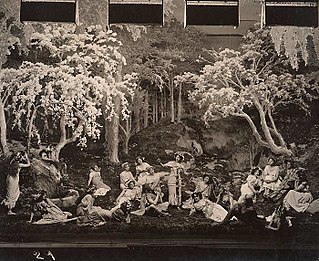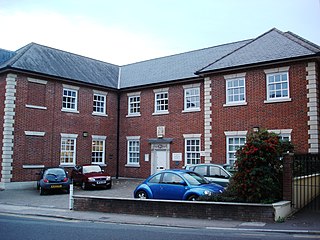
The Palace Theatre is a West End theatre in the City of Westminster in London. Its red-brick facade dominates the west side of Cambridge Circus behind a small plaza near the intersection of Shaftesbury Avenue and Charing Cross Road. The Palace Theatre seats 1,400.

Lionel John Alexander Monckton was an English writer and composer of musical theatre. He became Britain's most popular composer of Edwardian musical comedy in the early years of the 20th century.
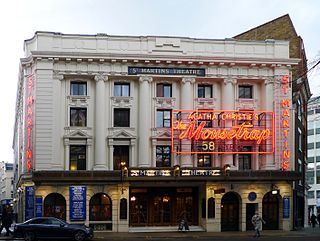
St Martin's Theatre is a West End theatre which has staged the production of The Mousetrap since March 1974, making it the longest continuous run of any show in the world.

Basil Willett Charles Hood was a British dramatist and lyricist, perhaps best known for writing the libretti of half a dozen Savoy Operas and for his English adaptations of operettas, including The Merry Widow.

ODEON Covent Garden is a four-screen cinema in the heart of London's West End. Formerly known as The Saville Theatre, a former West End theatre at 135 Shaftesbury Avenue in the London Borough of Camden. The theatre opened in 1931, and became a music venue during the 1960s. In 1970 it became the two cinemas ABC1 Shaftesbury Avenue and ABC2 Shaftesbury Avenue, which in 2001 were converted to the four-screen cinema Odeon Covent Garden.
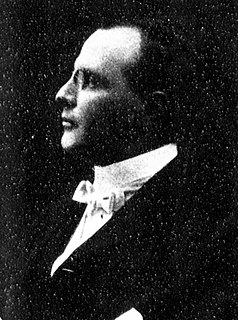
Richard Lansdale Munkittrick, better known as Howard Talbot, was an American-born, English-raised conductor and composer of Irish descent. He was best known for writing the music to several hit Edwardian musical comedies, including A Chinese Honeymoon, The Arcadians and The Boy, as well as a number of other successful British musicals during the first two decades of the 20th century.

The Shaftesbury Theatre was a theatre in central London, England, between 1888 and 1941. It was built by John Lancaster for his wife, Ellen Wallis, a well-known Shakespearean actress. The theatre was designed by C. J. Phipps and built by Messrs. Patman and Fotheringham at a cost of £20,000 and opened with a production of As You Like It on 20 October 1888.

Thomas Kirby Walls, known as Tom Walls, was an English stage and film actor, producer and director, best known for presenting and co-starring in the Aldwych farces in the 1920s and for starring in and directing the film adaptations of those plays in the 1930s.

Robert Courtneidge was a British theatrical manager-producer and playwright. He is best remembered as the co-author of the light opera Tom Jones (1907) and the producer of The Arcadians (1909). He was the father of the actress Cicely Courtneidge, who played in many of his early 20th century productions.

The Olympic Theatre, sometimes known as the Royal Olympic Theatre, was a 19th century London theatre, opened in 1806 and located at the junction of Drury Lane, Wych Street and Newcastle Street. The theatre specialised in comedies throughout much of its existence. Along with three other Victorian theatres, the Olympic was eventually demolished in 1904 to make way for the development of the Aldwych. Newcastle and Wych streets also vanished.

William Sydney Penley was an English actor, singer and comedian who had an early success in the small role of the Foreman in Gilbert and Sullivan's Trial by Jury. He later achieved wider fame as producer and star of the prodigiously successful Brandon Thomas farce, Charley's Aunt and as the Rev Robert Spalding in several productions of Charles Hawtrey's farce The Private Secretary.

Edwardian musical comedy was a form of British musical theatre that extended beyond the reign of King Edward VII in both direction, beginning in the early 1890s, when the Gilbert and Sullivan operas' dominance had ended, until the rise of the American musicals by Jerome Kern, Rodgers and Hart, George Gershwin and Cole Porter following the First World War.

Edmund James "Teddy" Payne, was an English actor, comedian and singer best known for creating comic roles in a series of extremely successful Edwardian musical comedies. He was often paired with the comic actor George Grossmith, Jr.

Phyllis Dare was an English singer and actress, famous for her performances in Edwardian musical comedy and other musical theatre in the first half of the 20th century.
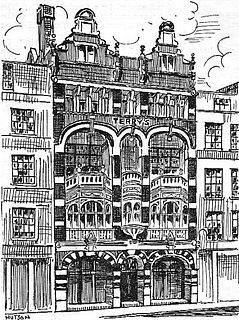
Terry's Theatre was a West End theatre in the Strand, in the City of Westminster, London. Built in 1887, it became a cinema in 1910 before being demolished in 1923.

Nina Sevening was an English stage actress, singer and light comedian.
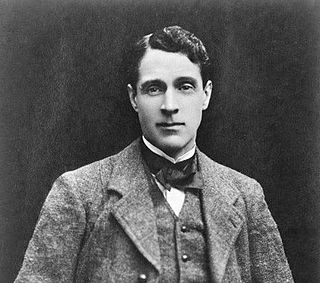
Alfred Leslie Lester was an English actor and comedian. Born into a theatrical family, he learnt his craft touring in melodramas, as a young man, but made his reputation as a comedian in musical comedy, music hall and, later, revue.
This is a summary of 1909 in music in the United Kingdom.

Daly's Theatre was a Broadway theatre at 1221 Broadway and 30th Street. It was built in 1867 and opened that year as Banvard's Museum but changed its name the following year to Wood's Museum and Metropolitan. In 1876 it became the Broadway Theatre, and finally was named Daly's Theatre in 1879 when it was acquired by Augustin Daly. After 1899, it was operated by the Shubert family. The building was demolished in 1920, after serving as a burlesque theatre and cinema.
